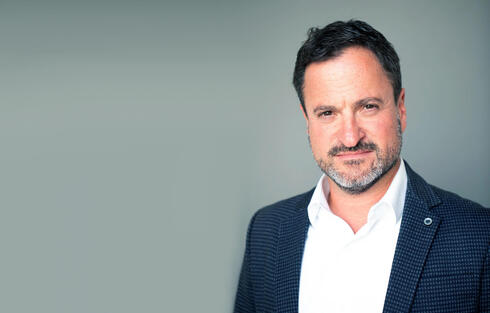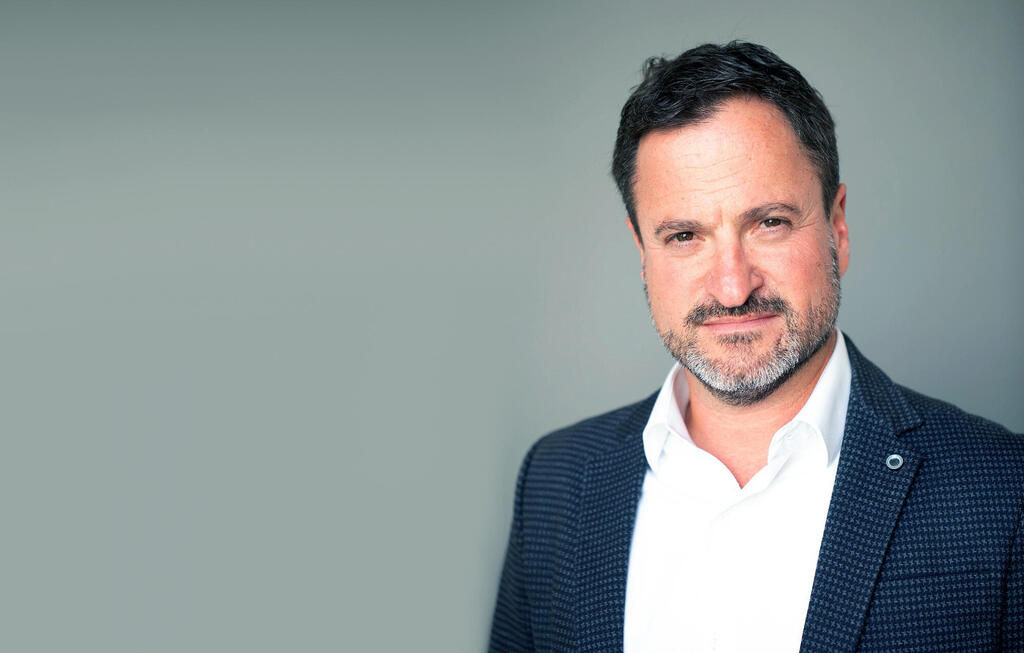
Interview
Cisco Israel Managing Director: "This will be a good year to invest in Israel"
"In 2023 Cisco will continue to make investments in Israel,” says Oren Sagi, Cisco Israel Managing Director. “We see better valuations today, the entrepreneurs are a little more realistic and there is also more pressure in the markets. All these conditions indicate that this will be a good year for us as an investor"
"I believe that also in 2023 Cisco will continue to make investments in Israel, because the market conditions encourage it. Today we see better valuations, the entrepreneurs are a little more realistic, and there is also more pressure in the markets. The combination of all these conditions indicates that this will be a good year for us as an investor," said Cisco Israel CEO Oren Sagi in a conversation with Calcalist ahead of an event this week in Tel Aviv, in which Liz Centoni, EVP, Chief Strategy Officer and General Manager, Applications at Cisco, will also participate.
"The connection between the talent that exists in Israel and the fascinating startups that exist here, and the monetary situation that prevails in the markets today gives us a lot of investment opportunities and I very much hope that in 2023 we will be able to continue to make acquisitions and strengthen our position in the Israeli market," Sagi said. "Beyond direct purchases of Israeli startups at various stages, the global corporation also makes indirect investments in Israel, through venture capital funds - so we are very involved in the Israeli market."
According to Sagi, when the global company is looking for a solution to a specific problem, local representatives from the corporate fund and M&A experts meet Israeli startups, present them to the investment committee of the corporate fund, which then also discusses suggestions presented by companies from across the world. The test is who manages to convince them that this is both the right purchase and the right ecosystem. "Therefore, part of my role as CEO of Cisco Israel is to make sure that Cisco Global sees Israel as the right place to invest in."
Cisco Israel employs 800 people in six development sites. Behind those numbers is a list of 17 acquisitions at a total investment of $7.2 billion made since its establishment about 25 years ago. In the last two years, Cisco Global has purchased three Israeli companies coming from several different fields: Epsagon, which developed systems that provide full visibility of activity in a multi-cloud environment, Sedona, which developed a central controller that connects the worlds of optics and IP, and Portshift, which provides a solution to protect traffic in the cloud.
"In recent years we also bought Leaba Semiconductor, which became Cisco Caesarea. This is an interesting story about a small, young Israeli company that suddenly drives a sales portfolio of $32 billion. Our center in Caesarea develops the processors, the silicon, which drives our entire portfolio. This is also part of the story of Israel because there is very diverse technological activity taking place here - from the development of chips, which is physics, chemistry, and electrical engineering, along with cyber defense solutions, to the development center in Netanya that deals with management systems for the telecom world. Our diverse development in Israel is one side of Cisco's story in Israel,” Sagi said.
"At the same time, of course, there is the business activity where we are one of the largest technology players in the country with an activity volume of more than a billion shekels. Chuck Robbins, CEO of Cisco Global, who was in Israel a month and a half ago, stated at one of the conferences that within five years business activity in Israel has doubled. From the smallest customers - coffee shops, law firms or accountants to the most complex customers, such as the Israeli government, the army and various security agencies, hospitals, banks and insurance companies."
Sagi emphasized that the third arm of the company's activity in Israel is the social arm. "We have two programs in this area that I, as CEO, put a lot of emphasis on: one is Cisco's social responsibility program and the other is the acceleration of digitization in Israel. This is a pro-bono program, as part of our contribution to the community, within the framework of which we work to connect the social periphery and the geographic periphery through technological centers throughout the country. Five years ago we launched the first hub in collaboration with the Dimona Municipality and since then we have established similar centers in the Eastern Negev, the Western Negev and the Upper Galilee." The activities of the social arm are managed by Zika Abzuk, Vice President of Business Development at Cisco Israel, with the aim of allowing youth from the periphery to connect better with the Israeli tech ecosystem through systems of education and training. In addition, Cisco Israel is also active in programs to integrate other sectors such as ultra-Orthodox and Arabs, as part of the concept outlined by Cisco Global to enable a connected future for everyone.
"Cisco's investments in the worlds of cybersecurity have led us to give various customers a platform for almost end-to-end protection: from protecting the end units for laptops and smartphones, to protecting the network, protecting the exit to the cloud and protecting the applications in the cloud itself. 80% of the traffic on the global internet at some point meets Cisco equipment and this gives us a very detailed picture that allows us to identify anomalies and attacks, also as part of the services we can provide to organizations and governments.
"The pandemic also taught the small businesses that without a digital presence they don't exist, so they all went digital. We started this change of attitude about four years ago, but it intensified a lot due to the pandemic. Today, everyone has some kind of digital front-end, or a virtual store, and this brought our small businesses vertical to manage tens of millions of dollars a year. Small customers in Israel buy technological solutions that are convenient to manage and deploy in a complete package - because otherwise they will be out of the game.
"If we look to the next decade, Cisco has set itself several main goals in terms of research and development. The first is quantum. Not only quantum computing, which is going to create a huge bang, but also quantum networks and quantum encryption. Another field is the metaverse - because we see ourselves as part of this world - video, for example, has an important part in this both on the applied side of virtual and augmented reality and in transferring data with the largest bandwidth. We operate from a concept that says that once the metaverse catches on - because it is catching on, but in the meantime it is doing so slowly - then we want to be a leading player in the infrastructure and application worlds."
Another area in which Cisco is interested in demonstrating involvement is the blockchain, as an enabling technology that connects with Internet 3.0 and how the new Internet environments are built.
In the medium term, the global corporation aims to lead the IT world in the cloud environment, as well as cybersecurity. "As we advance in the digital journey, as the scope of attacks increase, we see the greatest challenges in the world of defense. So we are making a lot of investments around the architecture of Zero-Trust (connecting every user, every device, every work environment),” Sagi said.














